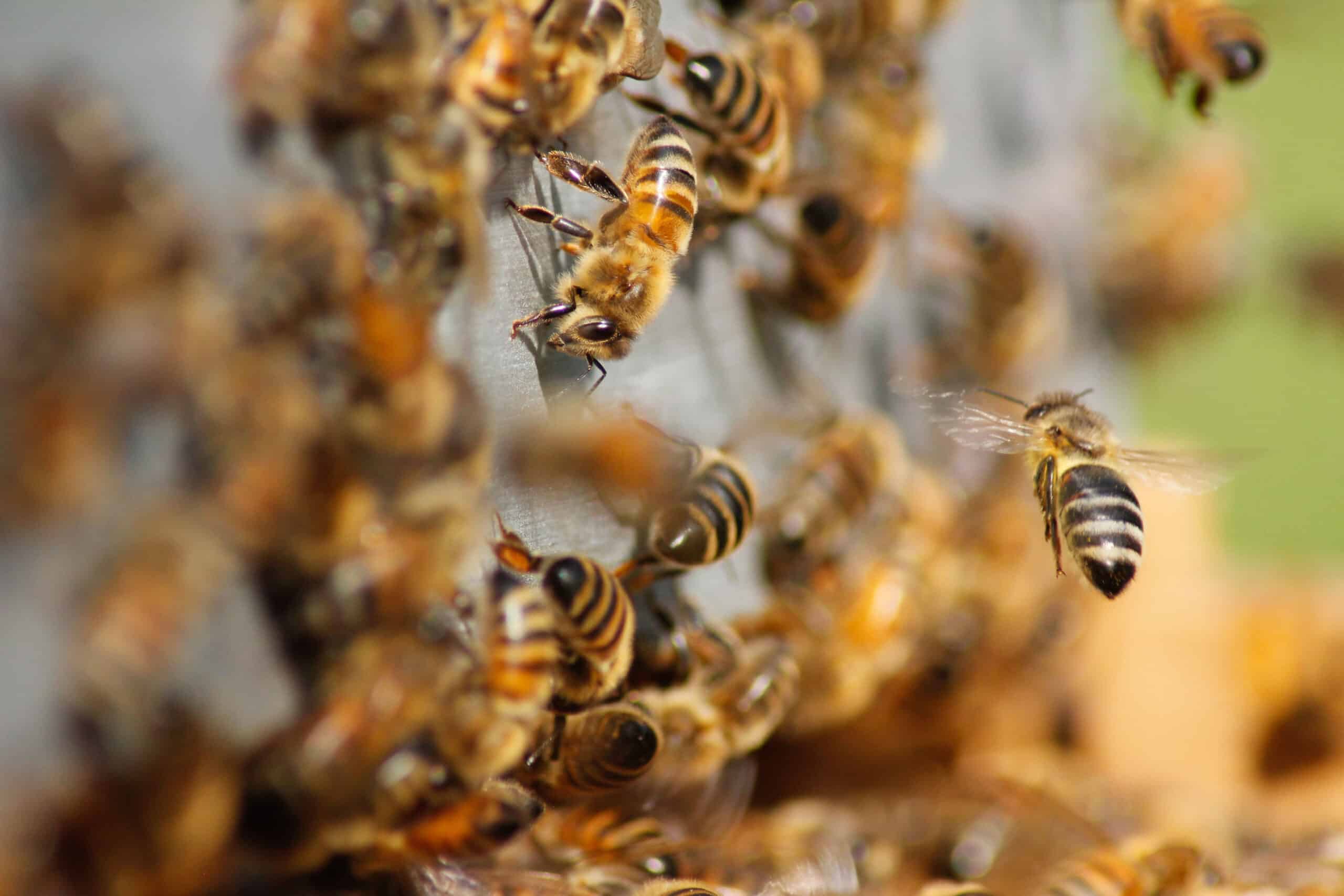Need Bee Removal ASAP?
Give us a call for 24/7 Emergency Wildlife Control & Removal in Dallas/Fort Worth.
(817) 606-7607Contact UsContact UsTexas is known not only for its vast landscapes and rich history, but also for its diverse wildlife, which includes the fascinating world of insects. The honey bee is an iconic and important insect species in Texas. These gentle bee giants play an important role in pollinating crops, native plants, and maintaining ecosystem health. However, these bees may find their way near your home, prompting homeowners to seek safe and humane methods of safely remove honey bees.
Honey Bees in Texas: Environmental Importance and Diversity
Honey bees (genus Bombus) are a species of large, fuzzy, and generally docile pollinators. These insects are an important part of the Texas ecosystem because they pollinate a wide variety of wildflowers, fruits, vegetables, and crops. Their distinct buzzing and appearance make them instantly recognizable and endearing to many locals.
Texas is home to a wide variety of honey bee species, each of which has adapted to the state’s distinct climates and habitats. The variety of flowers and plants found throughout Texas provide these bees with an abundance of food sources, allowing them to thrive and support the region’s intricate web of life.
Reasons for Encounters Near Your Home and Safety Considerations
Honey bees typically feed in open areas in search of nectar and pollen. However, it is not uncommon to come across them near your home. They may be drawn in by the scent of flowers, bright outdoor lighting, or even sheltered areas that offer shelter from the elements. While honey bees are generally docile and only sting when threatened, it is critical to approach them with caution to avoid accidental stings.
Removing Honey Bees Safely from Your Environment
Here are some safe removal tips if you find honey bees near your home and want to encourage them to leave without causing harm:
Keep Calm: If you see honey bees near your home, keep calm and avoid making sudden movements. Remember that they will not sting unless they are threatened.
Identify Attractants: Determine whether your home has any specific attractants, such as flowers, outdoor lighting, or even a water source. Consider temporarily reducing these attractants to discourage bees from remaining.
Natural Repellents: Certain scents have been shown to repel honey bees. Planting herbs such as mint, eucalyptus, or citronella around your home can help make it less appealing to them.
Distract the Honey Bees: Place a small bowl of sugar water or a few fresh flowers away from high-traffic areas to direct the honey bees’ attention. This may persuade them to visit a new location.
Make an escape route available: Open windows and doors near where the honey bees are. If they are trapped inside, they may be able to find their way out if a clear path is provided.
Consider contacting a local beekeeper or wildlife removal professional if honey bees have established a nest near your home or are consistently causing concern. These experts can advise you on the best course of action and may even be able to safely relocate the bees.
Encourage Pollinator-Friendly Practices: Plant native flowers and avoid pesticides that can harm bees and other beneficial insects to create a pollinator-friendly environment.
Coexistence and Conservation is the Big Picture
Honey bees are not only important pollinators, but also an important part of the natural world. Their presence serves as a reminder of the complex relationships that keep our ecosystems alive. By taking steps to coexist peacefully with honey bees near our homes, we help to preserve biodiversity and support nature’s delicate balance.
Texans can demonstrate their commitment to preserving the state’s remarkable natural heritage while also protecting their own well-being by understanding the ecological significance of these critters and safely remove honey bees when they find their way into homes.
Are you in need of honey bee removal? Our friendly operators at Dallas Fort Worth Wildlife Control are available now at (817) 606-7607. Find out more about our wildlife removal in Arlington and Fort Worth, TX.


